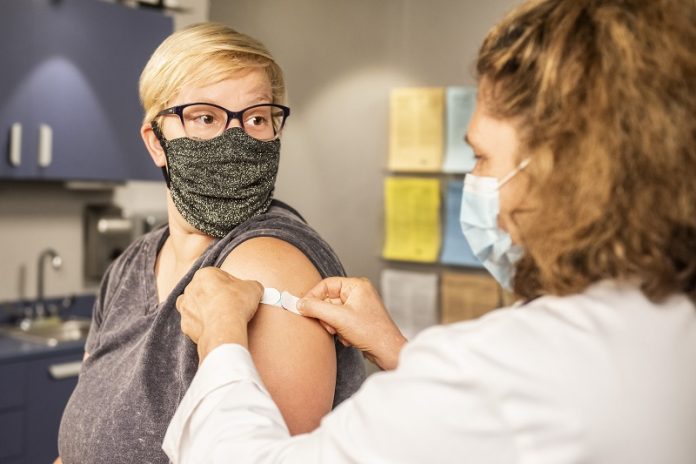
In a new study supported by NIH, researchers found the “rogue antibodies” linked to severe illness. They may help explain mechanisms associated with severe blood clotting.
The researchers found circulating antiphospholipid antibodies, which can be more common among people with autoimmune disorders, such as lupus.
However, these “autoantibodies,” which target a person’s own organs and systems, can also be activated in response to viral infections and activate other immune responses.
Scientists compared the blood samples to those from healthy controls and found the COVID-19 samples contained higher levels of the antibody IgG, which works with other immune cells, such as IgM, to respond to immune threats.
Higher levels of IgG were also associated with COVID-19 disease severity, such as in patients who required breathing assistance.
The researchers observed similar patterns, but to a lesser extent, after analyzing blood samples from 100 patients hospitalized for sepsis, which can leave the body in inflammatory shock following a bacterial or viral infection.
Antibody IgG helps bridge a gap between innate and adaptive immune responses – a process that helps the body recognize, respond to, and remember danger.
In normal cases, these features help protect the body from illness and infection. However, in some cases, this response can become hyperextended or altered and exacerbate illness.
A unique finding from this study is that when researchers removed IgG from the COVID-19 blood samples, they saw molecular indicators of “blood vessel stickiness” fall.
When they added these same IgG antibodies to the control samples, they saw a blood vessel inflammatory response that can lead to clotting.
Since every organ has blood vessels in it, circulating factors that lead to the “stickiness” of healthy blood vessels during COVID-19 may help explain why the virus can affect many organs, including the heart, lungs, and brain.
A query of this study was evaluating “upstream” factors involved with severe blood clotting and inflammation among people with severe COVID-19 illness.
Future studies could explore the potential benefits of screening patients with COVID-19 or other forms of critical illness for antiphospholipids and other autoantibodies and at earlier points of infection.
This may help identify patients at risk for extreme blood clotting, vascular inflammation, and respiratory failure.
If you care about COVID, please read studies about common drugs that could help prevent COVID-19 deaths, and people who can fight COVID-19 much better than others.
For more information about health, please see recent studies about men with low testosterone more likely to die from COVID-19, and results showing that people with COVID-19 recover faster with this treatment.
The study was conducted by Yogen Kanthi et al., and published in Arthritis & Rheumatology.
Copyright © 2022 Knowridge Science Report. All rights reserved.




